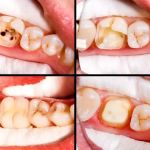The Relationship Between Dentists and Doctors
As someone who has spent years visiting dental offices, I’ve often wondered about the title “doctor” when it comes to dentists. You may have experienced this too, where a dentist is referred to as “Doctor,” but it’s not always clear whether or not they should be called that. This confusion is more common than you might think. So, is a dentist actually considered a doctor? And what exactly does it mean to be a doctor in the world of healthcare? Let’s dive into this topic and clarify everything.
What Does It Mean to Be a Doctor?
First, let's clear up the basic definition of what it means to be a doctor. In the medical field, a doctor is someone who has completed a doctoral-level education in a specific healthcare field. This can include both medical doctors (MDs), who focus on general health and wellness, and other healthcare professionals who have completed similar rigorous educational programs in their respective fields. The title “doctor” refers to someone who has attained a high level of expertise and is licensed to diagnose, treat, and help patients in a particular domain of health.
How Dentists Fit Into the Doctor Title
So, what about dentists? Are they doctors, too? The short answer is yes—dentists are indeed called doctors, but it’s a bit more nuanced than that. Dentists hold a degree known as the Doctor of Dental Surgery (DDS) or Doctor of Dental Medicine (DMD), both of which are doctoral degrees. This means that dentists have gone through extensive education, including undergraduate studies followed by dental school, where they acquire specialized knowledge and skills in dental health. They are doctors in their specific field of dentistry, much like medical doctors are experts in general health.
Education and Training of a Dentist
To fully understand why dentists are called doctors, let’s take a closer look at the education and training they undergo to earn their credentials. As someone who’s always been interested in the healthcare field, I find this part of the process fascinating. The road to becoming a dentist is rigorous, and the level of education required is comparable to that of medical doctors in many ways.
1. Undergraduate Education
Before entering dental school, aspiring dentists must first complete an undergraduate degree. This typically involves courses in biology, chemistry, physics, and other science-based subjects to build a strong foundation in the sciences. It’s common for students to pursue a Bachelor’s degree in a related field such as biology or chemistry, although it’s not always required. The goal here is to ensure that students are equipped with the scientific knowledge they need before diving into the complexities of dental care.
2. Dental School and Clinical Training
After completing their undergraduate education, prospective dentists enter dental school, which lasts an additional four years. This is where they specialize in the study of dentistry, including areas like oral health, tooth anatomy, dental surgery, and dental materials. The first two years are generally focused on classroom instruction and theoretical learning, while the remaining years are dedicated to clinical practice. During this time, dental students work with patients under supervision, gaining hands-on experience in everything from performing cleanings to conducting root canals and performing tooth extractions.
3. Licensing and Certification
Once dental school is complete, graduates must pass national and state licensing exams to become licensed to practice as dentists. These exams test both theoretical knowledge and practical skills to ensure that dentists are capable of providing safe, effective dental care. In addition to the licensing exam, some dentists pursue further specialization in areas such as orthodontics or oral surgery, which requires additional training and certifications.
Why Do Dentists and Doctors Have Different Roles?
Now that we’ve established that dentists are indeed called doctors, it’s important to understand the difference between the roles of dentists and medical doctors. Both professions require a high level of education and expertise, but their areas of focus are different. Dentists specialize in oral health, dealing with issues related to the teeth, gums, and mouth. Their primary goal is to prevent, diagnose, and treat dental diseases and conditions, such as cavities, gum disease, and tooth decay.
On the other hand, medical doctors (MDs) focus on general health and wellbeing, treating a broad range of illnesses, conditions, and injuries that affect the body as a whole. While dentists do receive training in areas related to overall health, their primary expertise lies in oral care. This is why we often think of medical doctors and dentists as having separate roles in healthcare, even though both hold the title of “doctor.”
Real-Life Experiences with Dentists as Doctors
I remember my first experience at the dentist’s office. I was just a kid, and I wasn’t sure what to expect. When my dentist introduced herself as Dr. Johnson, I didn’t think much of it. Over time, however, I realized that my dentist had the same title as my family doctor. What was the difference, I wondered? Over the years, I began to understand more about how dentists go through extensive training and are considered doctors in their own right. They can perform surgeries, prescribe medications, and provide treatments—just like any other doctor would in their area of expertise.
In fact, many people often visit their dentist more frequently than their general doctor, which is a testament to how important a dentist’s role is in maintaining health. I’ve had situations where my dentist was able to identify signs of health problems that weren’t directly related to my teeth—like early signs of diabetes that showed up in my gum health. Dentists truly are experts in their field, and their ability to diagnose conditions beyond just dental issues is part of what makes them “doctors” in every sense of the word.
The Connection Between Dentists and Overall Health
One of the key reasons why dentists are considered doctors is because oral health plays such a significant role in overall health. As I’ve learned through personal experience and research, oral health isn’t isolated—it affects the entire body. Poor oral health has been linked to various conditions, including heart disease, diabetes, and even dementia. Dentists are often on the frontlines of spotting early signs of these conditions, and their ability to diagnose, treat, and advise patients on oral health directly impacts their overall well-being.
In this way, the role of a dentist is not just about fixing teeth. It’s about being part of a healthcare team that monitors and maintains overall health. This makes the title “doctor” more than appropriate for anyone who has earned a dental degree.







 Canyon Vista Dentistry and Orthodontics4.0 (230 review)
Canyon Vista Dentistry and Orthodontics4.0 (230 review) Beverly Hills Prestige4.0 (216 review)
Beverly Hills Prestige4.0 (216 review) Quadrant Dental at Deerfield5.0 (32 review)
Quadrant Dental at Deerfield5.0 (32 review) Dr. Michael Silverman Dental P.C.4.0 (23 review)
Dr. Michael Silverman Dental P.C.4.0 (23 review) Eagan Dental Care4.0 (197 review)
Eagan Dental Care4.0 (197 review) Norwich Family Dental Associates4.0 (38 review)
Norwich Family Dental Associates4.0 (38 review) The Importance of Oral Health Education During Pregnancy for a Healthy Pregnancy
The Importance of Oral Health Education During Pregnancy for a Healthy Pregnancy Best Tips for Brushing Your Teeth Properly for Healthy Gums: Essential Techniques for Oral Health
Best Tips for Brushing Your Teeth Properly for Healthy Gums: Essential Techniques for Oral Health Why Skipping Dental Checkups Can Lead to Bigger Oral Health Problems
Why Skipping Dental Checkups Can Lead to Bigger Oral Health Problems Advantages of Porcelain Dental Restorations
Advantages of Porcelain Dental Restorations How Can Diabetes Cause Tooth and Gum Problems? Preventing and Managing Oral Health Issues
How Can Diabetes Cause Tooth and Gum Problems? Preventing and Managing Oral Health Issues Healthy Habits for Promoting Good Oral Health and Hygiene: Tips for a Healthy Smile
Healthy Habits for Promoting Good Oral Health and Hygiene: Tips for a Healthy Smile